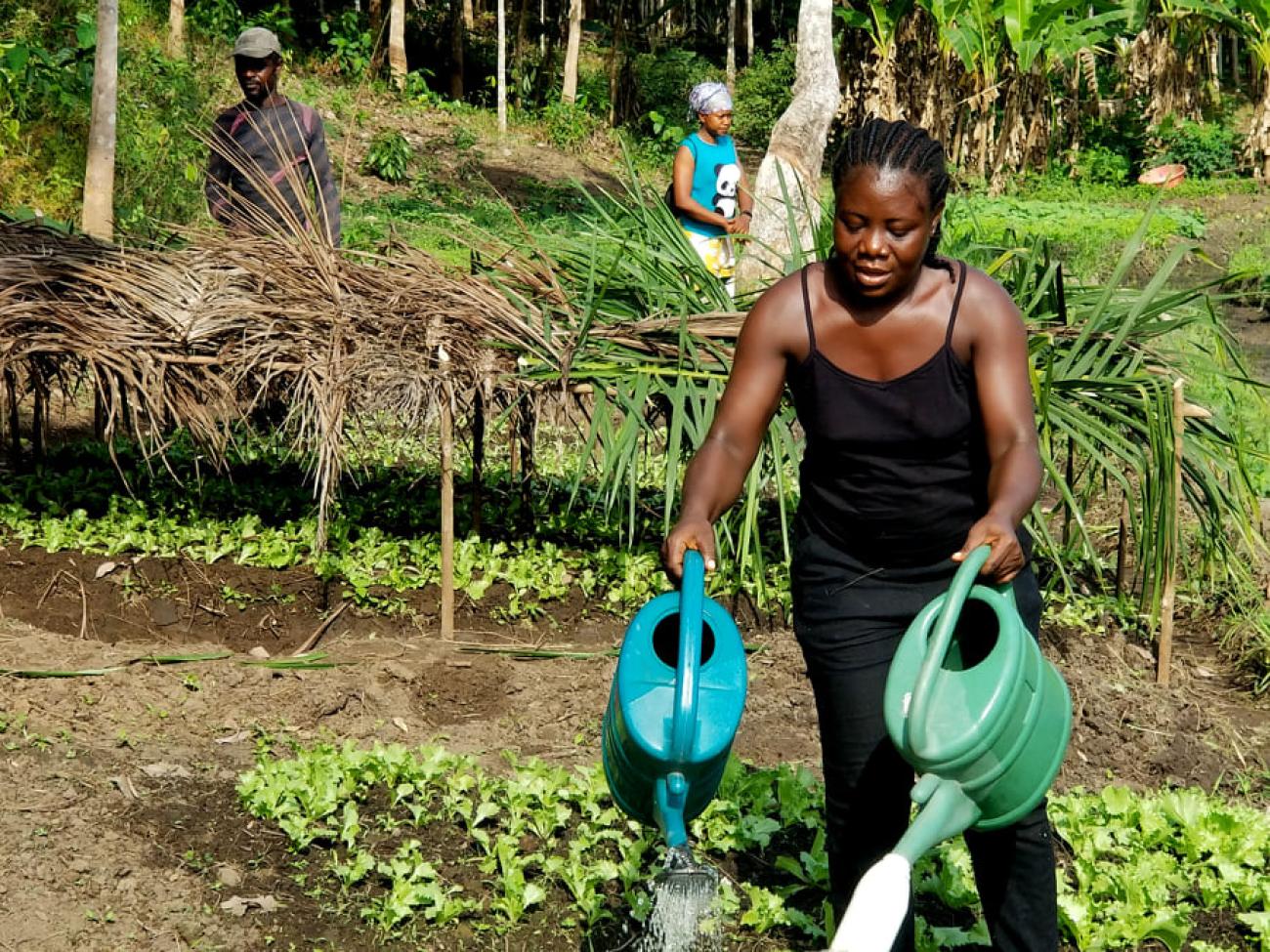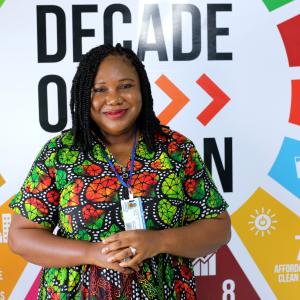Emily Seward (30), is a farmer from central Liberia and a beneficiary of the climate smart agriculture skills training program facilitated by UN Women.
"I am specializing in lettuce, cucumber, onion and cassava production. I encountered a lot of challenges when I started farming. Lack of resources, including transport and machinery was a challenge. I am now working with some youths to reduce the workload. We have a big cassava farm, but we do not have a processing machine. We spend the whole day grading cassava with our hands to produce garri. "
Participating in the climate smart agriculture training helped Emily to increase knowledge on her agricultural work. It has also helped her to practice low-cost agriculture. The quality of her production is now high.
" I now know that during the dry season, I should avoid burning grass because a lot of smoke will pollute the atmosphere. Being involved in climate smart agriculture has improved my life. I manage to pay school fees for my 14-year-old daughter using proceeds from the farm. I feel proud of what I have achieved. We started a village savings and loan association with support from UN Women and this helped me to save some money ", Emily said.
She is encouraging other women farmers to stay focused and produce food for the country, noting that there are a lot of benefits from the soil.
Emily Seward is one of many rural women in Liberia who have been empowered to implement climate smart agriculture initiatives. In 2022, UN Women will mobilize resources to provide smallholder farmers with access to machinery through community-based farming cooperatives to reduce workload on women.






